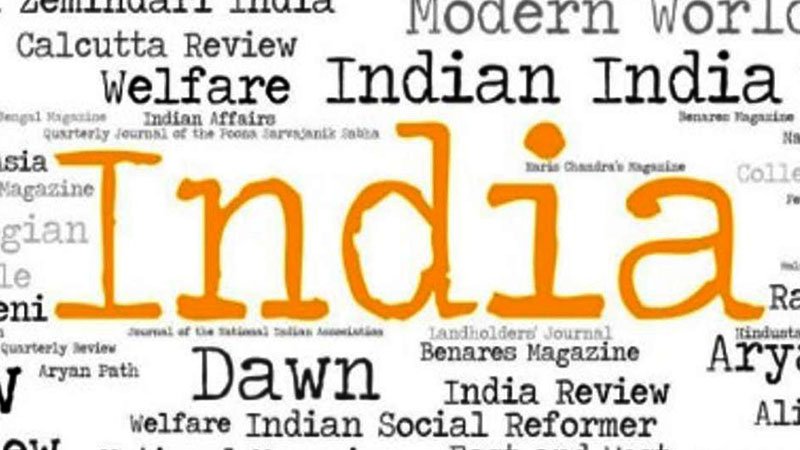Discovering India: Hundreds of journals, published between 1835 and 1947, have been found. They hold lessons
Four years ago, having survived cancer, I decided to use my second chance to do something for the land of my birth.
An opportunity was at hand. In 2013, I had stumbled upon the fact that between 1835, when English education arrived in India, and 1947, when newspapers and radio became the forum for national debate, India had been home to a few hundred English-language periodicals. These periodicals, which featured beautiful essays by many our most prominent public figures, effectively midwifed modern India. They created and moderated a national conversation about what kind of society and country India ought to become.
Due to neglect, most these periodicals are no longer available in India. Instead, they are scattered in libraries around the world, making it difficult and expensive to study them. I made it my mission to remedy this unhappy circumstance. With financial support from New York University, Abu Dhabi, and the National University of Singapore, I assembled a team of 147 research assistants who combed through 167 libraries in order to index every surviving periodical. This index, which comprises 315,000 entries, is now freely available on www.ideasofindia.org.
These periodicals have much to teach to our age. The lesson that I drew from reading them is the following. Since aspiration and corruption are ever present, it is but natural that civilisations should encounter triumphs and tragedies. The quality of greatness though belongs to those who reflect on what has raised them up and what has brought them low, and then endeavour afresh.
By the start of the 19th century, it had become apparent that our civilisation had fallen short. The question, as Swami Vivekananda would later put it, was this: Why had forty million Englishmen been able to obtain rule over three hundred million Indians?
Initially, political weakness was attributed to tradition and superstition, which had shut the door to new knowledge. Thus, came the plaintive cry, as Prafulla Chandra Ray recounted in the Bengali brain and its misuse, that “rationalism is the very fountain of a nation’s life”. Our forefathers eagerly embraced the English language and sought knowledge wherever they could find it. Undeterred by the threat of excommunication, they slipped out of their homes in the middle of the night, as Romesh Chunder Dutt did, to board ships to England or Japan, from where they sent letters to these periodicals, urging their countrymen to seize the day. Inspired, men like Ashutosh Mukherjee devoted themselves to building colleges that produced research as fine as any university in the West, and transmitted their purposefulness via periodicals such as The Collegian and Progress of India.
Visit our store at http://online.ensemble.net.in
Later, the idea dawned that India’s political weakness owed no less to social division and disorder. With the United States, Germany, and Japan before their hungry eyes, a rising generation determined that India had been rendered vulnerable by the unwillingness of her people to act in the common good. Thus, began the debate that we live with today: On what basis should we cooperate?
The debate was fierce. Open the Modern Review to see Rabindranath Tagore criticise Mahatma Gandhi for introducing The Cult of the Charka. Glance at Marxian Way to see MN Roy lambast the Mahatma’s “mystic extravagances” as a great threat to the Indian renaissance. These periodicals also show Hindu nationalism to have a longer and more important role than we recognise. It is not, as some claim, a recent phenomenon, a by-product of German and Italian fascism or caste politics in north India. Consider Raj Narain Bose’s essay on The Superiority of Hinduism to Other Existing Religions, which was published in The Theosophist in 1882, having been foreshadowed by The National Character of the Hindus of Bengal, which was published in the Bengal Magazine in 1876. Dare one mention the rousing manifesto of the Hindu Literary Society, which was published in The Oriental Magazine and Calcutta Review as early as 1823?
What these periodicals reveal, then, is that what we decry as assaults on the “Idea of India” are, in fact, the working out of very deep and long-standing disagreements about how we are to regenerate ourselves. It is not helpful, therefore, to suppress contrary views with ad hominem charges. There is no bravery in bullying the other side.
View our Blog: https://ensembleias.com/blog/
There may be much to despair: Brazen defences of obscurantism; the prevalence of religious charlatans; the castigation of English as a colonial imposition even though it opens the door to knowledge; the reduction of our public universities to battle grounds; and the reluctance to allow private universities to chart their own course. Still, these periodicals remind us that our civilisation is capable of overcoming all this. Equally, when we exult over the “New India”, let us read these periodicals to be reminded of how deep-rooted parochialism is in our society. It is entirely possible that we shall reprise the errors that brought our nation low.
Let us thus preserve and reflect on the words of our forefathers. Their counsels cannot answer our questions, but they do provide much-needed perspective that curbs excess in all directions.
Source : Hindustan Times | Written by: Rahul Sagar
For more details : Ensemble IAS Academy Call Us : +91 98115 06926, +91 6232282596 Email: [email protected] https://ensembleias.com/




